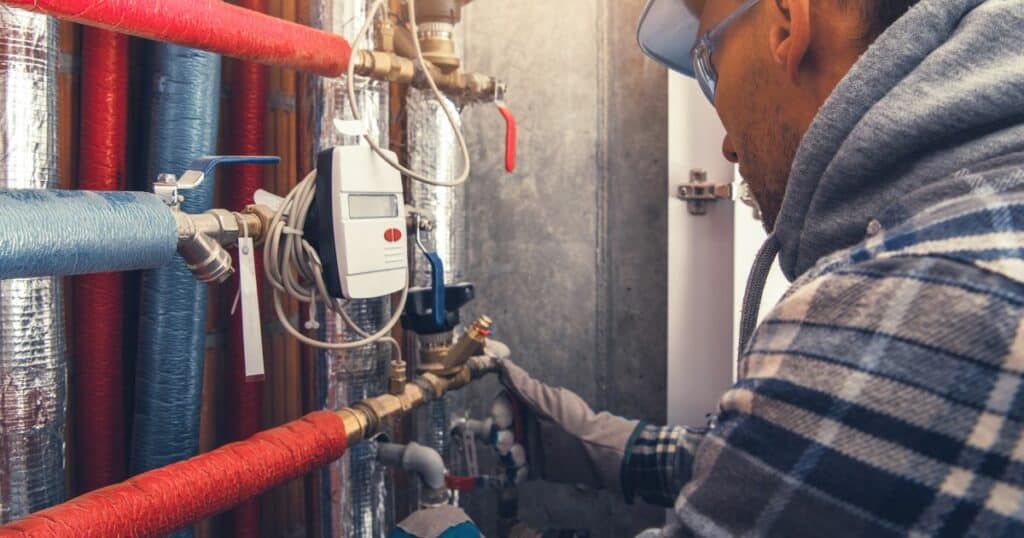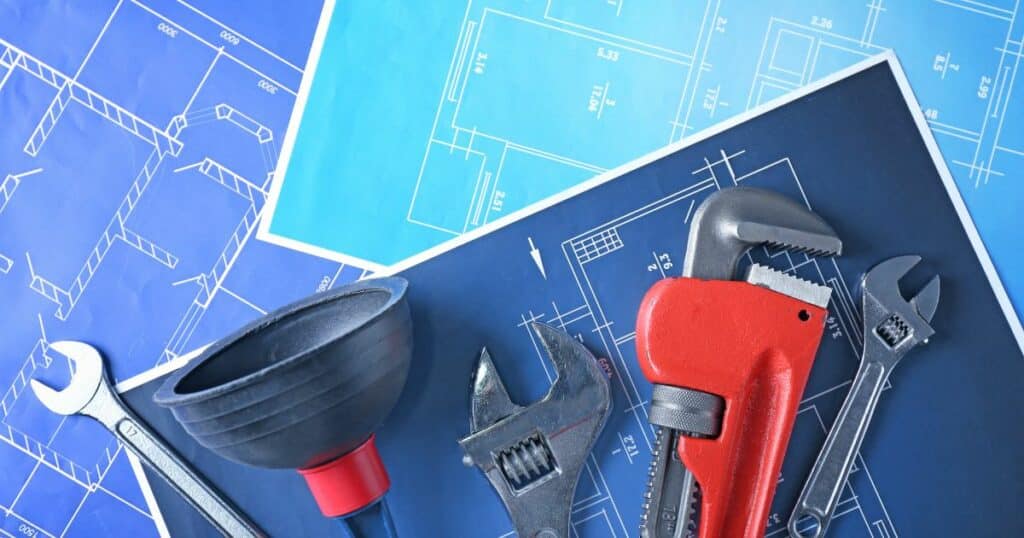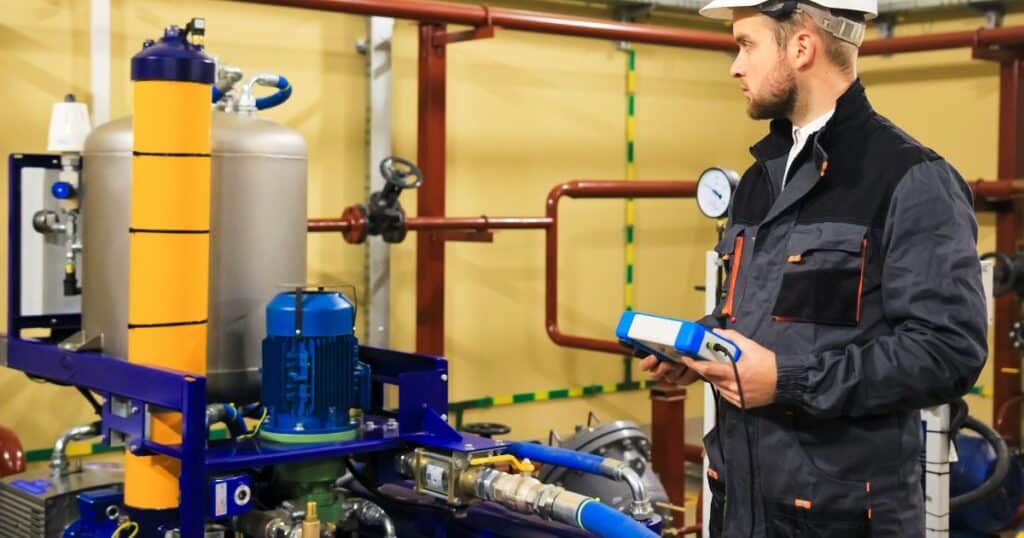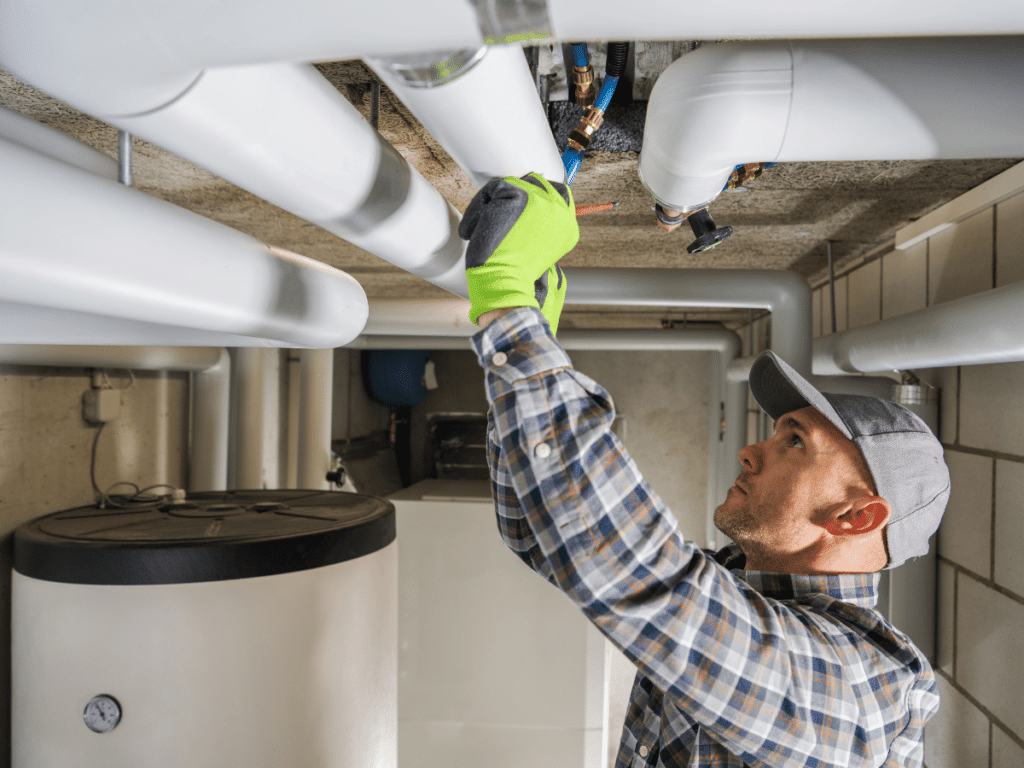In the intricate world of construction, where every detail counts, plumbing engineering emerges as a crucial element ensuring the seamless operation of water systems in commercial and residential buildings.
When starting any construction project, the expertise of a plumbing engineer becomes indispensable. In this article, we share the importance of plumbing engineering, and what to consider when planning the plumbing aspects of your next construction project.
Understanding Plumbing Engineering
If you are reading this post, you may already understand the basics of plumbing engineering. If this area of construction and engineering is new to you, the following blog provides a brief overview of what plumbing engineering is and why it is vital to any construction project.
Plumbing engineering involves the design, installation, and maintenance of plumbing systems within buildings. It encompasses a comprehensive understanding of fluid dynamics, material science, and regulatory standards.
Plumbing engineers play a pivotal role in ensuring the efficient flow of water supply, drainage, and sanitation, thereby enhancing the functionality and comfort of buildings.
The Importance of Plumbing Engineering in Construction
Plumbing engineering is essential for both commercial and residential construction projects.
In commercial settings, such as office buildings, hospitals, and hotels, plumbing systems must accommodate high volumes of water usage while maintaining optimal performance and safety standards.
In residential projects, plumbing engineering ensures homes are equipped with reliable water supply and sanitation systems, enhancing the quality of life for occupants.

Key Services Offered by Plumbing Engineers
Plumbing engineers offer a range of services tailored to the unique needs of construction projects. From initial assessment and planning to detailed design and implementation, they provide expertise at every stage of the construction process.
Their services may include:
- Conducting site evaluations to assess water supply and drainage requirements.
- Designing plumbing layouts and sizing pipes to optimize efficiency and minimize waste.
- Selecting appropriate fixtures and materials to ensure durability and compliance with regulations.
- Integrating plumbing systems with other building components, such as mechanical and electrical systems, to achieve seamless functionality.
- Ensuring all plumbing system designs align with local code requirements.
At VP Engineering, we ensure projects are well designed by considering the following in our plumbing engineering services:
- Building Usage:
- We account for the expected usage of the building to efficiently design the necessary plumbing systems (i.e. sanitary, domestic water, etc.).
- Building Site:
- We account for the site’s conditions and systems designed by outside disciplines (i.e. civil, landscape, etc.) in order to ensure the building service sizes and locations are coordinated.
- We also provide the building’s tenants with proper water pressure as required by code and industry standards.
- Code Requirements:
- We account for local code requirements and create plumbing designs based on local jurisdiction.
Learn more about our plumbing engineering services.

Key Considerations for Plumbing Engineering
In the intricate tapestry of construction projects, plumbing engineering stands as a vital thread, weaving together the essential components of water supply, drainage, and sanitation systems within buildings.
As construction firms start new ventures, understanding the key considerations for plumbing engineering is essential to ensuring the success and efficiency of their projects.
In this section, we explore some crucial factors that must be considered during the planning, design, and implementation of plumbing systems in construction projects.
Initial Site Assessment and Planning
Before diving into the design phase, conducting a thorough site assessment is essential for plumbing engineers. This involves evaluating factors such as water source availability, soil and site conditions, building codes, and project specifications.
By understanding the unique characteristics of the site, plumbing engineers can develop tailored solutions that meet the specific requirements of the project while ensuring compliance with regulatory standards.
Design and Layout Optimization
The design phase is where the vision for the plumbing system begins to take shape. Plumbing engineers must carefully consider factors such as building layout, occupancy requirements, fixture placements, and water flow dynamics.
By optimizing the layout and sizing of pipes, as well as selecting appropriate fixtures and materials, engineers can maximize efficiency, minimize waste, and ensure the seamless operation of the plumbing system.
Integration with Mechanical and Electrical Systems
Plumbing systems must coexist harmoniously with mechanical and electrical systems. Coordination between disciplines is crucial to avoid conflicts and ensure the smooth integration of all building systems.
Plumbing engineers must collaborate closely with mechanical and electrical engineers to coordinate ductwork and piping layouts, as well as the technical specifications of any other equipment placed (such as pumps, water heaters, etc.). They must ensure that all systems work together seamlessly to meet the needs of the building and its occupants.
Regulatory Compliance and Code Adherence
Navigating the complex landscape of building codes and regulations is a fundamental aspect of plumbing engineering. Engineers must stay abreast of local, state, and national codes governing plumbing systems, ensuring that designs meet all requirements and standards.
From backflow prevention to drainage slope requirements, adherence to codes and regulations is essential to safeguarding the health, safety, and welfare of building occupants.
Review our feedback on recent changes to Florida building codes.

Choosing the Right Plumbing Engineering Firm
From initial site assessment and planning to design optimization, integration with other building systems, and regulatory compliance, plumbing engineers play a critical role in shaping the functionality, efficiency, and safety of plumbing systems in buildings.
By prioritizing these key considerations, construction firms can ensure the success and longevity of their projects, delivering high-quality, sustainable, and resilient plumbing infrastructure to their clients.
Selecting the right plumbing engineering firm is critical for the success of construction projects. Companies should look for firms with a proven track record of excellence, extensive experience in plumbing engineering, and a commitment to delivering innovative solutions.
By partnering with a reputable plumbing engineering firm such as VP Engineering, companies can ensure their construction projects are completed on time, within budget, and to the highest quality standards.
About VP Engineering
What truly sets VP Engineering apart is our unwavering commitment to customer service. Our excellence in communication and relentless dedication to offering actionable solutions distinguishes us from most other firms. At VP Engineering, we go beyond the stereotypical engineer by providing thoughtful solutions or alternative options for every challenge we encounter.
Our core values – honesty, integrity, respectfulness, responsiveness, and professionalism – form the foundation of our approach. We take pride in doing the right thing for our clients. Choose VP Engineering as your trusted partner, where commitment meets ingenuity, ensuring the success of your project from conception to completion.
Contact us today and experience the difference.
Plumbing Engineering FAQs
Here are our responses to some of the most frequent questions we see surrounding plumbing engineering.
Is mechanical engineering the same as plumbing?
No, mechanical engineering and plumbing are distinct disciplines. While mechanical engineering covers a broad spectrum of mechanical systems, plumbing engineering specifically focuses on the design, installation, and maintenance of plumbing systems within buildings.
What is the role of a plumbing design engineer?
A plumbing design engineer is responsible for conceptualizing, designing, and overseeing the implementation of plumbing systems in construction projects. This includes assessing project requirements, designing layouts, selecting fixtures and materials, and ensuring compliance with regulations and standards.
What is the difference between a plumbing engineer and a piping engineer?
While both plumbing engineers and piping engineers work with fluid systems, their focus areas differ. Plumbing engineers specialize in internal plumbing systems within buildings, including water supply, drainage, and sanitation. Piping engineers, on the other hand, focus on larger-scale piping systems for industrial plants, power plants, and oil refineries.
Does a mechanical engineer address plumbing?
While mechanical engineers may have some basic knowledge of plumbing principles, plumbing engineering requires specialized expertise. While mechanical engineers may handle basic plumbing tasks, complex plumbing projects typically require the skills of dedicated plumbing engineers.
What is an engineered plumbing system?
An engineered plumbing system refers to a meticulously designed and optimized plumbing infrastructure tailored to the specific needs of a building. This includes customized layouts, fixture selections, and integrated technologies aimed at maximizing efficiency, sustainability, and performance.
Is plumbing part of mechanical engineering?
While plumbing and mechanical engineering share some commonalities, such as fluid dynamics and thermodynamics, they are distinct disciplines. Plumbing engineering is recognized as a specialized field within the broader realm of engineering, focusing specifically on plumbing systems within buildings.



